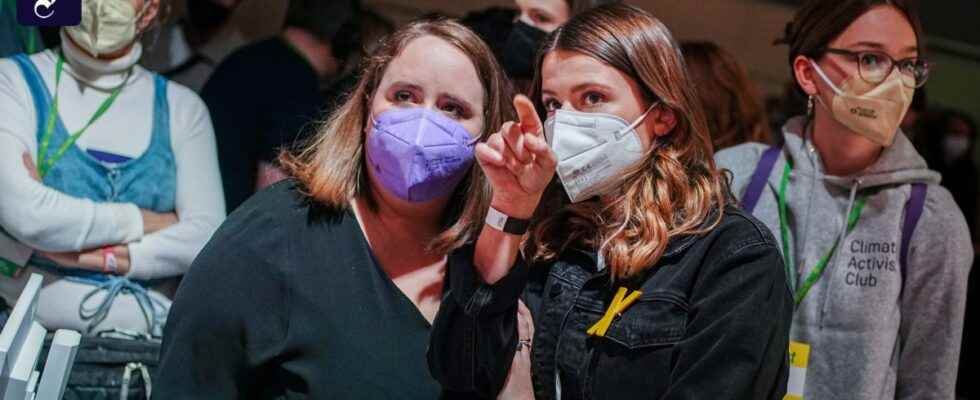An the end, the Presidium did not know what else to do: Only after the warning “We will switch off the microphone for you in a moment, Cem”, did Cem Özdemir release the lectern again at the Green Party Congress in the Bonn Congress Center. The Federal Minister of Agriculture had been urged to set some things straight, to defend the decisions of the Green Ministers in the federal government against the many criticisms that came so concentrated on Sunday after two largely harmonious days in the Bonn World Conference Center.
The program included the debate on climate protection, but in the end it was all about “Lützi”, the village of Lützerath in North Rhine-Westphalia, which, according to an agreement between the federal government and the energy company RWE, is now to be excavated for the Garzweiler opencast lignite mine .
The Green Youth wants to prevent that, and most of the speakers on Sunday agreed: Lützerath must stay. The climate activist Luisa Neubauer criticized the “ecological hyperrealism” of the Greens. The government’s policy will cement the use of fossil fuels for many years to come. “The big picture is manifested in Lützerath,” said Neubauer. The place becomes a symbol of the break with the Paris climate agreement. The speech by Karl-Wilhelm Koch was similar: Lützerath was a “red line,” said he, one of the most keen submitters of amendments at Green party conferences. “Lützerath is such a point where we shoot up the support of the street and the support of Fridays for Future.”
Özdemir: “We are the doers’ party”
Özdemir, on the other hand, warned the Greens to also see the positive. Because the phase-out of coal in the Rhenish mining area is being brought forward to 2030, farmers there can continue to cultivate their land. “That would not have happened with Federal Minister of Economics Peter Altmaier.” It gets on his nerves that the Greens always have to apologize for their decisions. Özdemir also reminded the Greens that they do not have 50 percent of the votes, neither in the federal government nor in North Rhine-Westphalia. “We are in the minority, but we move things from the minority.” He added almost hoarsely: “Please leave the whining to the others, we are the doer party.” The Greens should also make politics for those that they would not have chosen. After the Presidium’s urgent warning not to exceed his speaking time, he left the stage.
After all the previous speakers, Özdemir suspected that the vote on the central motion of the federal executive committee could be tight that day. Federal Environment Minister Steffi Lemke (Greens) had previously distanced herself from the policy of the federal government. “God knows, we haven’t just decided on helpful things for climate protection in the last few months,” she said. The place Lützerath is probably “the strongest symbol”. Her reference to the fact that the agreement with RWE left 280 million tons of lignite in the ground, saying that this was “not nothing”, sounded more like a half-hearted defense of government action.
Co-party leader Ricarda Lang campaigned more passionately for the plan drawn up by Federal Economics Minister Robert Habeck with RWE. She also promised to work in Berlin for a 100 billion euro special fund for climate protection. She did not mention that the Climate and Transformation Fund (KTF), which has already been filled with more than 100 billion euros, has long been in existence.
What had already become apparent in the debate later came true: when the motion of the federal executive board against that of the Green Youth was up for a vote, no clear result could be seen on the voting cards in the hall. “It’s very close,” stated the Presidium and scheduled a written vote. In the end, however, the motion of the Green Youth, which had called for a moratorium on Lützerath, was rejected. There were 294 yes votes, 315 no votes and 27 abstentions. Sunday just went well for the Greens.
